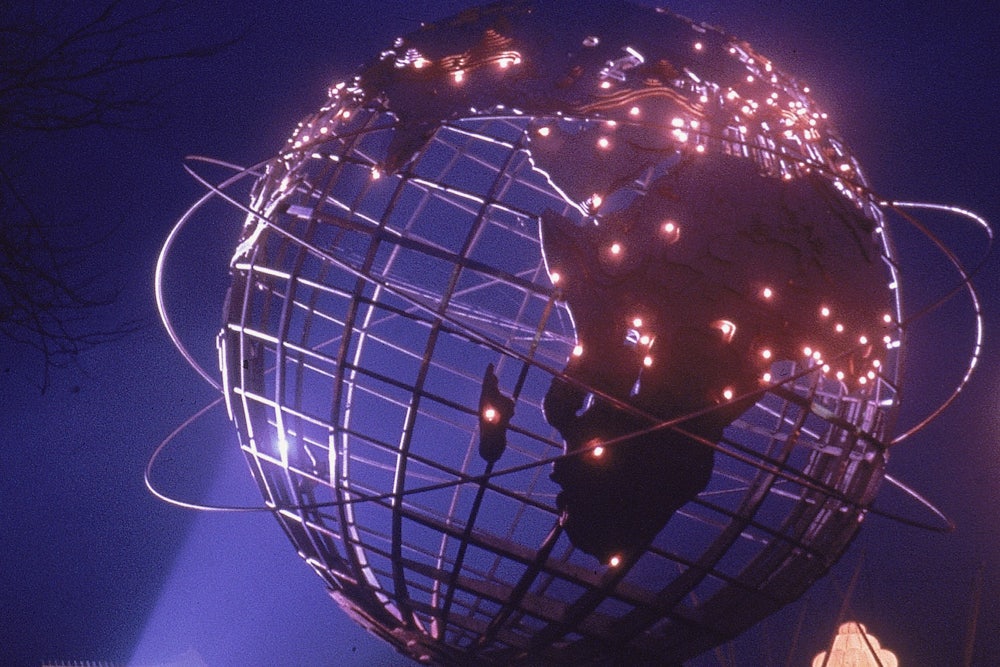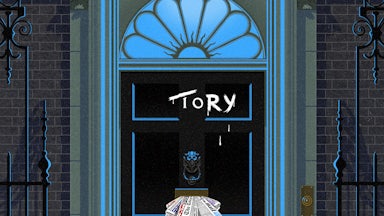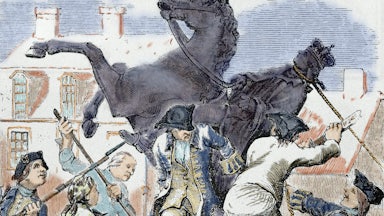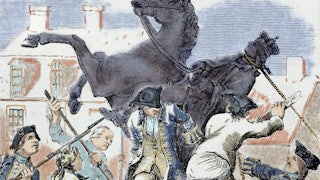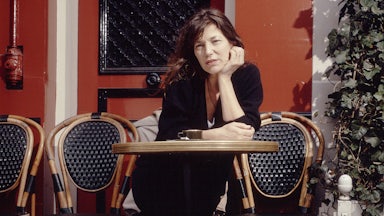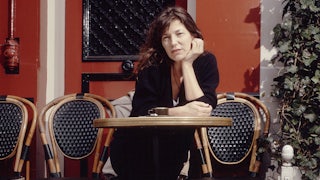The Wikipedia article for the Covid-19 pandemic didn’t exist until January 2020. By June, it was one of the site’s most visited entries of all time. It became, according to Wikipedia’s project page of article rankings, “the biggest phenomenon Wikipedia has ever known.”
Today, with 86 million page views, the Covid-19 pandemic entry is in a two-way tie for the thirty-fourth most viewed Wikipedia article, ranking alongside Miley Cyrus. It isn’t far behind thirty-first place, which is currently a three-way tie between Taylor Swift, Star Wars, and China.
Perhaps more fascinating than the pandemic’s central article are the 31,889 pages that link to it. (Another 185 entries—such as one on the 2019 coronavirus outbreak—redirect to the main article.) These articles represent the vast array of subjects that have somehow been affected by Covid-19—articles that have been created or amended in something close to real time by a faceless army of online editors around the world seeking to track the ever-expanding impact of the pandemic.
In the past year, much attention has been paid to Wikipedia’s battles against medical misinformation, and for good reason. But the bigger—or wider—story is the remarkable, ongoing attempt to describe and categorize an event that has touched wildly miscellaneous walks of life. If life imitates art, then Wikipedia pursues life with unflagging voracity. As we mark the site’s twentieth anniversary, the Covid-19 pandemic tests the status to which it has risen: a breathing, collective record of our past and present—and the digital age’s most expansive and accessible English-language encyclopedia (it is also available in over 300 other languages).
No one event in the new millennium has had repercussions as pervasive and divergent as those of the pandemic. And its consequences have already been recapitulated in tens of thousands of Wikipedia articles. The phenomenon is like the Jorge Luis Borges story about a map that is as large as the empire it depicts. For a catastrophe like Covid-19, we need a medium as sprawling to understand it.
Here is but a sampling of the topics that have been revised because of Covid-19:
- Starbucks
- Census
- PetSmart
- Cyclone Amphan
- Stripchat
- The Voice (American season 19)
- West Indian cricket team in Bangladesh in 2020–21
- Mink
- Construction site safety
- Racism in China
- List of Pakistani films of 2020
- Panic buying
- 2021 Irish budget
- Royal Australian Navy
- The National Law Review
- Alcoholics Anonymous
- Amitabh Bachan
- Graffiti
- History of the Republic of Turkey
- Cockfight
- Ricky Martin
- Professional wrestling match types
- Slaughterhouse
For some entries, the pandemic is merely a marker of time. In Anarcho-communism, for example, a caption under one photograph reads: “UCL, anarchist protest in France, on October 16th during the Covid-19 pandemic.”
For many, it is the sole impediment to the continuation of business as usual. Microsoft says that, due to the crisis, the company “closed all of its retail stores indefinitely due to health concerns.” New York City’s famed Strand bookstore cites employee layoffs in addition to the postponement of a new store on the Upper West Side. The television series Friends refers to a filming delay for a reunion special.
Other articles discuss notable reactions to the crisis. The Church of Jesus Christ of Latter-Day Saints mentions an increase in food donations to 16 affected countries, while Britney Spears includes an inspiring Instagram pandemic response by the singer with Democratic Socialist undertones.
A number of subjects have been recontextualized in light of the pandemic. The Triage entry observes “widespread agreement among ethicists” that triage during the pandemic should prioritize “those who have the best chance of surviving.” Global Ceasefire’s central example is the United Nations Security Council resolution passed in July 2020 demanding a cessation of all conflict so that humanitarian aid can be delivered to regions hit hard by the pandemic.
And then there is the crop of unusual consequences. The Polyamory page says that “social distancing … created ripples in existing relationships, leading some to split apart and others to struggle to maintain their connections with one another.” San Diego Zoo Safari Park notes that two of its gorillas became the “first known cases of Covid-19 transmission from humans to apes.” Toilet paper points to global shortages in March 2020, solemnly adding: “Unlike other products, toilet paper has no substitute.” And Sea turtles indicates record numbers of nests in Thailand due to the pause in beach activity.
The pandemic has had “bizarre ripple effects on all dimensions of human experience,” said Alex Stinson, a senior program strategist at the Wikimedia Foundation (Wikipedia’s parent organization). “You see this pattern of societal catharsis: Whatever many parts of society are paying attention to will bring a cluster of Wikimedia attention.”
While the Covid-19 pandemic page isn’t anywhere close to being Wikipedia’s most linked-to article (or even its most linked-to event—both World War II and the American Civil War have more site-wide references), it is unique as an omnipresent, persisting, and heterogeneous news story.
Stinson couldn’t recall another current event that has its own Wikimedia page dedicated to collating and interpreting Wikipedia’s response to it. “I think the scale and multilingual response of the reaction to Covid in the [Wikipedia] community is a great microcosm for seeing these issues,” he said.
Andrew Lih, a professor of journalism at American University, discussed such community responses to breaking news events in his 2009 book, The Wikipedia Revolution. Because it is essentially “co-labor,” Lih wrote, Wikipedia can cover events with an ambit and simultaneity that outstrip the capacities of 24-hour newsrooms: “As fast as the news happens, like worker bees in a honeycomb, Wikipedians file, edit, and organize up-to-the-second dispatches.… In the English Wikipedia, where activity is nonstop, articles have become an instant snapshot of the state of the world, serving as a continuous working draft of history.”
The global distribution of editors, and their varying quirks and specialties, draws cadres of these “worker bees” to most breaking news stories, wherever they take place. “An editor specializing in editing articles about Japanese boy bands shifted their focus to updating infrastructure damaged by the 2011 tsunami while another editor migrated their dispute-resolution experience from Harry Potter articles to the Fukushima nuclear disaster article,” wrote scientist and researcher Brian Keegan in Wikipedia @ 20: Stories of an Incomplete Revolution, a collection of essays published last October. While the average Wikipedia article draws fewer than 10 unique editors over years, Keegan noted, breaking news entries bring in hundreds of editors in a matter of days and tend “to be longer; have more links to other Wikipedia articles; have more references and citations; and have more images, maps, and multimedia,” not to mention “more ‘raw’ material available in the form of reporting and social media content than historical events requiring archival research skills.”
The nearly 7,000 pages that Wikipedia classifies as “strongly related” to the Covid-19 pandemic rest upon the contributions of over 97,000 editors. Still, Wikipedians quip that 90 percent of a page’s editors do 10 percent of the work—sometimes, just one or two take on the task of creating and structuring the bulk of an article.
Netha Hussain, an Indian doctor who works at a hospital in Gothenburg, Sweden, has created over 200 articles and made over 10,000 edits in English since 2010. Most pertain to the fields of medicine and health care. Last April, after reading about a family in India who ate poisonous fruit in hopes of preventing the coronavirus, she created List of unproven methods against Covid-19. Later, she created Misinformation related to vaccination, which unsurprisingly is replete with references to the coronavirus. After one of her relatives was diagnosed with cancer, she found herself doing some research, which eventually led her to write Covid-19 and cancer. And after watching the American epidemiologist Maria Van Kerkhove at a World Health Organization briefing, she checked to see if Van Kerkhove had a Wikipedia entry. “It wasn’t there,” Hussain said. “Now there was a knowledge gap I could work on—so I went ahead and created that article. Most of my ideas come spontaneously, when I’m doing something else.”
Liam Wyatt, a program coordinator at WikiCite and longtime Wikipedia editor, was living in Bologna, Italy, when the country became one of the first to impose a national lockdown. “I put my anxieties into trying to harness that moment,” said Wyatt, who in 2010 founded the GLAM-Wiki initiative (“galleries, libraries, archives, and museums”), which pairs cultural institutions with experienced Wikipedia editors. He channeled his interests into a “lockdown project”: Impact of the Covid-19 pandemic on the arts and cultural heritage, an extensive roundup of changes and closures in museums, music, performing arts, literature, publishing, cinemas, radios, and even zoos, around the world.
While entries across many genres reference the pandemic, Wikipedia editors have also created comprehensive “Impact of the Covid-19 pandemic on …” articles, of which the main Impact page is the master list. (Netha Hussain, for example, created Impact of the Covid-19 pandemic on healthcare workers and Impact of the Covid-19 pandemic on international relations.)
Wyatt had noticed a few fledgling write-ups about individual cultural events affected by the pandemic, including releases of new films and video games. “I thought, well, if we’re going to have lists of video games that have been delayed, I want to see something for the traditional arts and culture sector because there is a lot of media about that, but it’s much harder to write about,” Wyatt said.
He appended a “Covid-19 in popular culture” section to the end of the article, which was left mostly blank, save for a few lines about the certainty of impending works of art that would reference the pandemic. Fellow editors immediately disputed the section, citing a lack of substance. “I said, ‘Just hang on, this is going to fill in,’” Wyatt said. “If you think about the plague of the Middle Ages and how much literature and culture references the plague again now, this is a category we can create in advance because we know it’s going to fill out. And that’s what happened.” Indeed, it grew so big that it became its own article.
In his essay on Wikipedia’s relationship to breaking news, Brian Keegan notes the prodigious detail of the September 11, 2001 terrorist attack article in the months following the event. There was even a list of the nearly 3,000 casualties by name, location, and civilian status. Editors started to argue that the fastidiousness was “unbecoming of the traditional encyclopedia that Wikipedia was trying to emulate stylistically,” and eventually portions of the entry disappeared.
That Wikipedia articles can spring into existence overnight, grow, and then contract again, reflects the peculiar vicissitudes of record-keeping in the digital age. Because the online encyclopedia is living and breathing, it is bound to the present. “Gradually, as the community comes to understand [the pandemic] with a macro perspective, two, three, five, 10 years out, some of those subpages will be deleted, or they’ll be merged,” Stinson said. The Tourism in Zanzibar page, for instance, may one day forgo its Covid-19 reference, especially if there’s a surviving, comprehensive article about the pandemic’s effects on global tourism.
Wikimedia archives all deleted pages, of course, which is why Stephen Harrison, writing in Slate, astutely observed that “today’s Wikipedia revisions [will] become a historical artifact” for future scholars studying this period.
Still, while Justin Bieber has more page views and Midfielder has more references than Covid-19, experienced editors seem to agree that something unprecedented is afoot in Wikipedia.
“I believe the ecosystem of Covid-related articles is the most comprehensive and dense network of Wikipedia content because of the duration of the event and its universal, thoroughgoing impact on all aspects of nearly all society,” Wyatt said. “It’s every country, every culture, every language, every aspect of every society. It’s not just medicine. It’s not just tourism. It’s not just cultural heritage.”
In the 20 years since Wikipedia was founded, the free, voluntarily edited, community-monitored encyclopedia has amassed more than three and a half billion words in English alone, more than 90 times as many as the 120-volume Encyclopædia Britannica. It has become our reflexive destination when we need curiosities slaked and statistics confirmed—whether we’re prowling through the personal lives of celebrities or corroborating the death tolls of wars. As Big Tech monopolizes the internet, Wikipedia showcases what communities can achieve when neither monetization nor vainglorious gratification is the end goal: a map of our past and present—of all the profound, bizarre, and trivial things that make up our world—that is as dynamic and capricious as the humans who create it.
